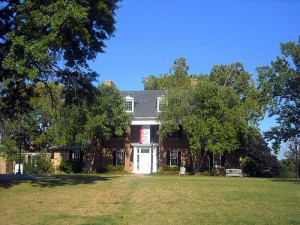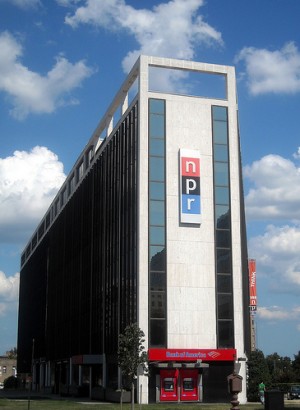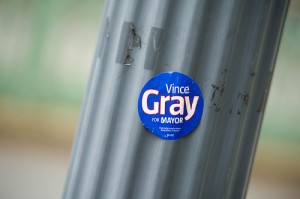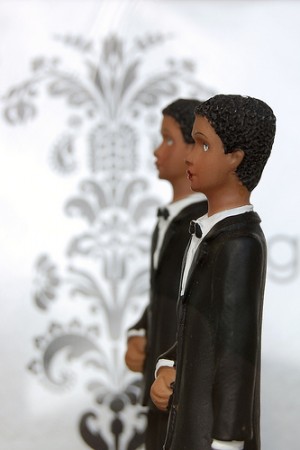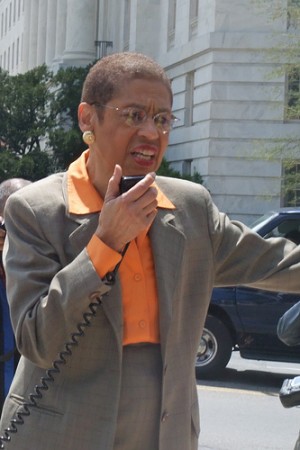Yesterday, I covered a local protest against Chipotle. Approximately 40 people marched down Irving Street NW to the fast food chain’s Columbia Heights location on 14th Street. Miguel Bravo, one of the fired workers, addressed the crowd. Check back for comment from City Council members and Chipotle’s Communications Director, Chris Arnold.
Politics
RECENT POSTS
What can vouchers do for D.C.?
Two weeks ago, Congress struck a last minute budget compromise to avoid a government shutdown. Part of that deal included restarting a voucher program in D.C. that had ended in 2009. Over at The New Republic, Matthew McKnight wonders if vouchers can provide a viable alternative to public schools–especially when the quality of private schools can vary dramatically:
Tuition at the city’s most elite, highest-achieving private schools are far too expensive for both the previous voucher allotments ($7,500 per year) and the increase proposed in the new bill ($12,000 per year). A smaller number of students were able to make up the difference from other funding sources in order to attend the more costly private schools. But, this means that most students with vouchers can only afford to attend private or parochial schools that, in many cases, are only marginally less bad than their public schools.
Lower school tuition for Sidwell Friends, the private school the Obama children attend, is nearly $32,000 for the 2011 school year. Sidwell offers financial aid to nearly a quarter of its student body–awarding an average of $20,965 to eligible students– but tuition is only the first hurdle to cross. McKnight interviewed an African American senior at the prestigious school who discussed feeling like an outsider who had to overcome obstacles like “sharp racial imbalances”…and that Senior wasn’t even a voucher student.
“A New Era of Polarizing Racial Politics in the District”
Now reading: “Will white identity politics come to post-post-racial D.C.?“, by Adam Serwer at the City Paper.
But just as the browning of America has awoken a novel white identity politics nationally, the demographic forces that framed D.C.’s last mayoral election may prove to be the prologue to a new era of polarizing racial politics in the District, one in which explicitly catering to its most affluent white residents is a path to victory rather than a route to an ignominious defeat.
The Census numbers released last week showed that D.C.’s black residents have been fleeing the city in even larger numbers than expected, leaving blacks with a bare 50 percent majority of the population. The raw racial and cultural divide exposed by the contest between Gray and Fenty is also exacerbated by which residents are leaving. In 2009, the D.C. Fiscal Policy Institute noted that “while incomes have risen for white households and those with the most advanced educations, incomes have been stagnant or falling for others.” The exodus of the city’s black middle class only exacerbates the trend. Playing to a base of black voters, now more than ever, also means playing to a base of poor voters.
Funding Diversity Through NPR
Tomorrow, the House of Representatives is scheduled to vote on H.R. 1076, which would take federal funding away from NPR and prohibit local stations from using such money to acquire ANY programming. While reading this message on WAMU’s website, something else struck me about this issue– how it will impact diversity:
This issue affects a much larger population than only WAMU 88.5 and our Washington community. If H.R. 1076 becomes law, many local public radio stations, particularly those in rural areas, would have difficulty continuing to provide the news and public affairs programs that millions of Americans rely on every day.
Diverse voices are also at stake. This bill would affect the ability of stations to access Native Voice 1, the Native American Radio Service. It would impact the work of the Latino Public Radio Consortium and the African American Public Radio Consortium, which create and distribute programs that showcase those diverse perspectives that mainstream public radio wants and needs to hear.
When I was at Public Media Camp last year, I heard a speaker mention that in some rural areas, public radio is the only source of culturally-diverse or international news and programming. At a time when newspapers around the country are shrinking, if not closing, that’s a sobering thought. If H.R. 1076 passes, who will be silenced? And how would that impact all of us?
Gray Ethics and Transparency
WaPo’s Petula Clark calls out the Mayor’s hypocrisy:
Surreptitious. Clandestine. Circuitous. Sweetheart deals. Cronyism.
Those are all words that D.C. Mayor Vincent C. Gray (D) used to attack the incumbent mayor on the campaign trail last year. And that’s why he is a disaster right now, not even 100 days in office.
The very platform of his campaign – sound ethics, fairness, transparency and dignity – are now crumbling in the face of some ugly allegations.
In case you forgot them, here are some of Fenty’s greatest hits:
Continue reading
Race, Class and Gay Marriage
Over at TAPPED, Jamelle Bouie explains it all, if by all we mean “Black People and Gay Marriage”:
The broader question is this: Why aren’t black people energized about gay marriage, despite having high rates of religious attendance? Easy answer: It’s class, stupid. To channel Princeton political scientist Larry Bartels for a moment, the culture wars are mostly fought between Republican and Democratic elites; after all, it’s easy to obsess over gay people when you’re not worried about paying your bills.
For African Americans, who are disproportionately lower-income, gay marriage is far less important than jobs, health care, and economic growth (this is also true of working-class whites, though to a lesser extent). When you couple this with extremely high support for President Obama — and also, the fact that black people hold different opinions on different things — it’s no real surprise that African Americans, as a class, are less than interested in whether gay people can marry or serve openly in the military.
Our Money, Their Power
From DCist, I learned that Republicans in the House want to prevent federal tax dollars from being used to pay for abortions…
…and they’ve included the District’s locally-raised tax dollars in that prohibition… that means that our local tax dollars — which have to go to Congress for final approval — are considered “federal” for the purposes of the prohibition. This is a restriction that Congress couldn’t easily make on any state, but given our status as the legislative body’s favorite colony, can be imposed on the District without any real consequences. Restrictions such as these had been in place before, but in late 2009, the Democratic Congress acted to lift them. The National Abortion Rights Action League has already condemned the proposal, calling it “an unfair restriction” that “would reimpose the ban on Washington, D.C.’s use of its own local funds for abortion for low-income women.”
But DCist commenter “Over the River” took issue with that characterization:
There is no question this is an emotional topic and you are entitled to your opinion. I also feel you are reading the NARAL incorrectly. The point they are making is a woman’s right to her body should not be limited to those who can independently afford an abortion. You have twisted the point of discussion to play a class game with reproductive rights.
Tough topic for a 5pm post on a Friday, but it struck me as important.
Controversial Immigration Views from a bar in Adams Morgan
According to NBC4, The Black Squirrel, a bar on 18th Street NW, is generating some serious buzz– and it’s not always the positive kind, nor what you might expect:
A months-old blog post on the website of an Adams Morgan bar is stirring up new controversy. Twitter is all… atwitter (sorry) about an entry on the website of the Black Squirrel (2427 18th St. N.W.) decrying illegal aliens…
Local Twitter users are promising to boycott the venue. “Moving back to DC in 3 days, love craft beer & the only thing I know about @ThBlackSquirrel is won’t ever go there,” wrote Kevin Thurman (@kmthurman).
The Black Squirrel might want to keep the following in mind: Do NOT anger people on the Internet. Especially about political issues, in D.C., to people who need artisanal craft beers merely to survive.
I’m not surprised that a bar– even one in the Morg, which I associate more with partying than politicking– has a blog which explores hot-button issues now and then. This is D.C., after all. I am surprised when such a blog boldly proclaims sentiments like this about illegal immigration:
Continue reading
Kojo on Tucson, Guns and Volatile Political Discourse
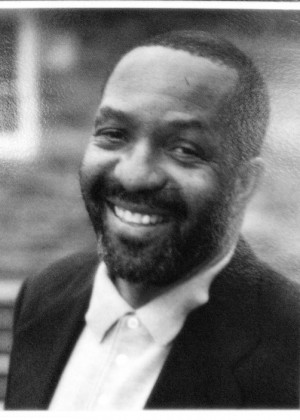
WAMU 88.5
Kojo Nnamdi
I was lucky enough to see WAMU’s Kojo Nnamdi when I was at the station this morning; I asked him what he thought of the tragic shooting this weekend in Tucson. His take:
It seems to me that there are two political battles we are trying to fight: one is whether or not we can lower the volatility of our political discourse and the other is whether we can limit access to handguns and weapons of deadly force.
I don’t have a great deal of optimism that either battle can be won. In the short term, the battle to lower the decibel levels of our political discourse may seem to succeed, but in the final analysis, talk radio is a for-profit business and volatility seems to drive the profitability.
In the second instance, gun manufacturers and the NRA seem to have congress in a headlock, to mix metaphors. Hence my lack of optimism.
D.C. Loses its Voice
I keep seeing tweets about how stripping Delegate Norton of her vote disenfranchises the 600,000 people who live in D.C…it just occurred to me that the majority of those residents are people of color. And that Congress isn’t the most diverse place, either. This move by the new Congress is unfortunate, on so many levels (via TBD):
“To me it is unseemly in the 21st century that anyone would be stripped of a vote,” said Del. Eleanor Holmes Norton, who has represented Washington D.C. since 1991.
Norton said the loss of limited voting rights was a “very bitter pill” for the people of the District, who a year ago where within sight of gaining a full vote in the House. The Senate voted to give the District a fully vested representative, but attached an amendment to weaken the District’s tough gun control laws that was unacceptable to some House Democrats.
New Washington Mayor Vincent Gray said at a protest rally Tuesday that the GOP move to remove Norton’s remaining voting rights was “the most outrageous insult imaginable.”
Norton sought to prevent adoption of the new rule by offering a motion to set up a special committee to study the delegate voting issue, but it was defeated on a party-line vote.



